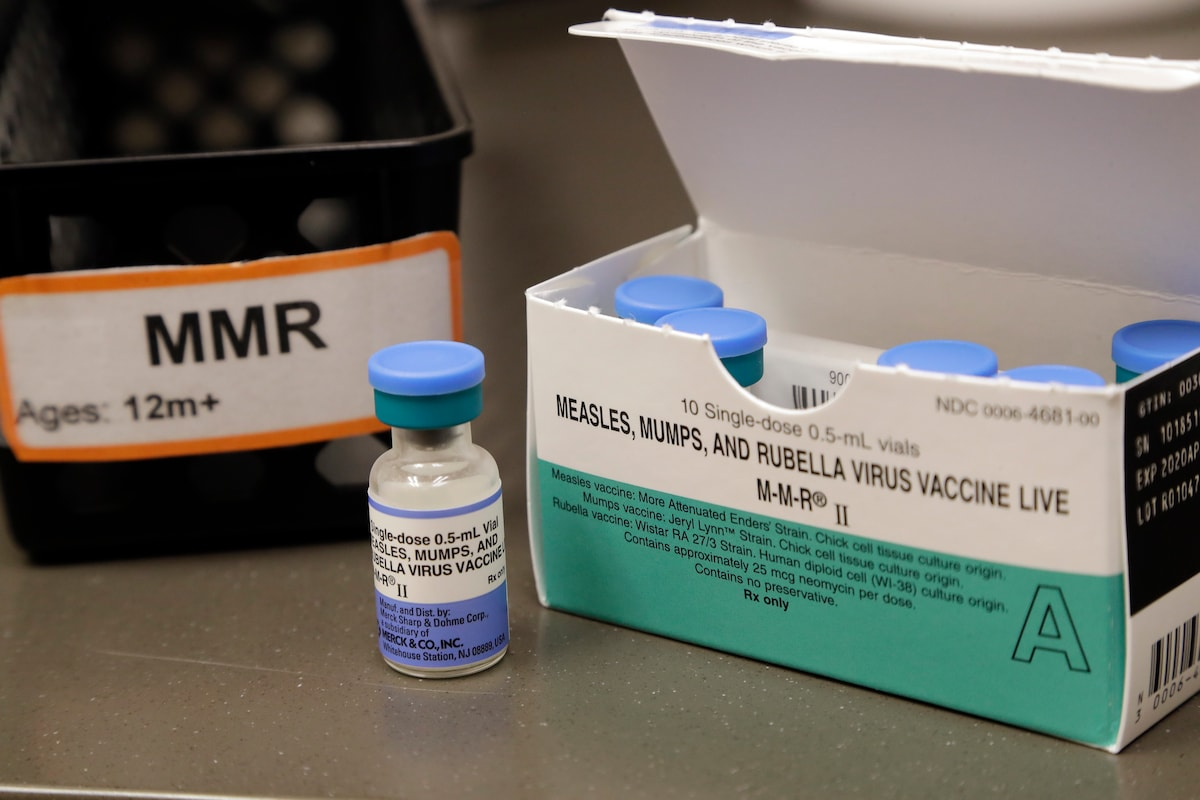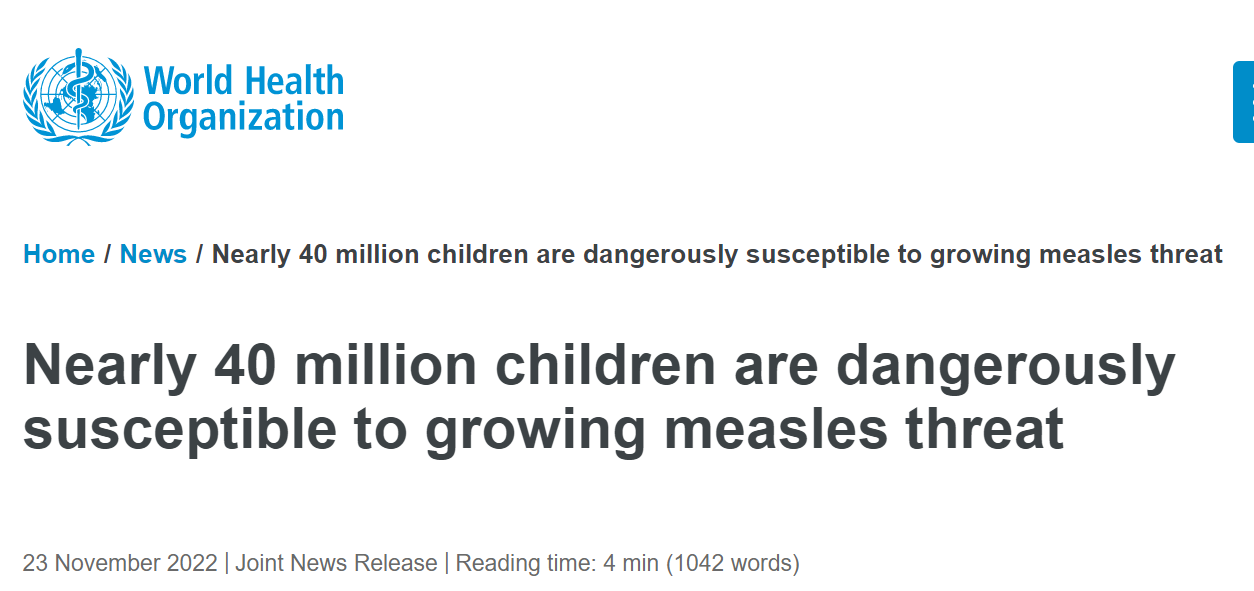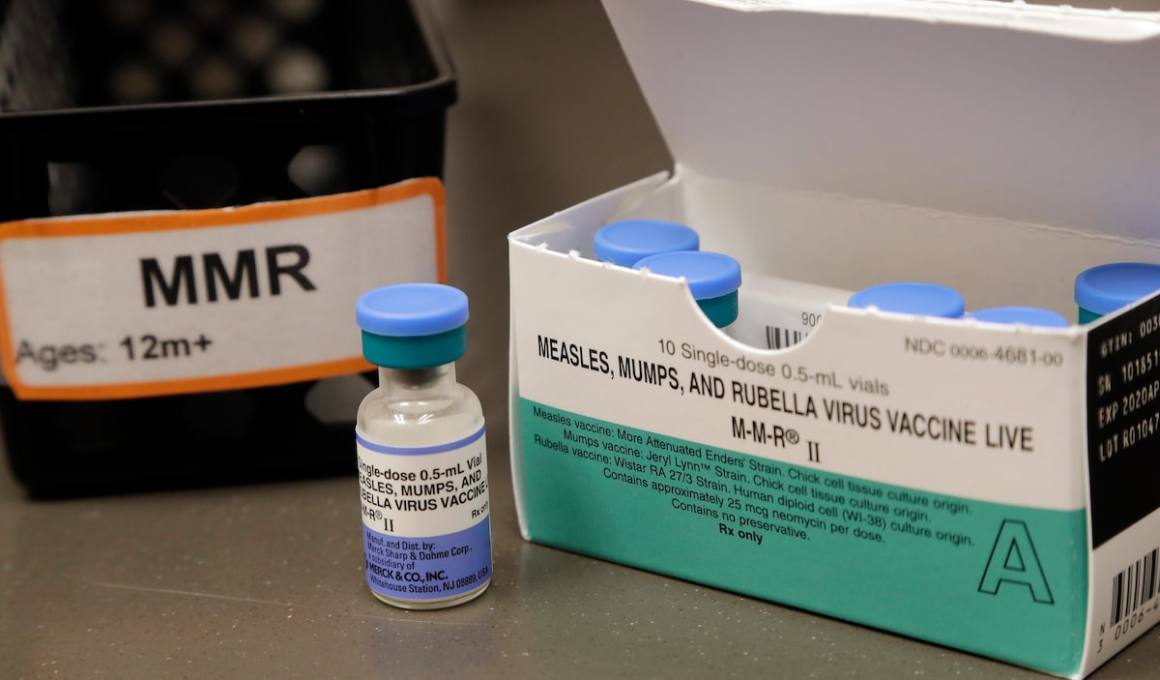health transformation institute
the most comprehensive knowledge portal for continuous health transformation
Joaquim Cardoso MSc*
Founder, CEO and CSO
November 25, 2022
MSc* from London Business School — MIT Sloan Masters Program
What is the message?
- Calling measles an “imminent threat in every region of the world,” the two public health bodies said in a report that almost 40 million children missed their vaccine doses last year.
- Urgent global action needed. Measles anywhere is a threat everywhere, as the virus can quickly spread to multiple communities and across international borders.
- CDC and WHO urge coordinated and collaborative action from all partners at global, regional, national, and local levels to prioritize efforts to find and immunize all unprotected children, including those who were missed during the last two years.
Executive Summary:
What is the problem?
- In 2021, nearly 61 million measles vaccine doses were postponed or missed due to COVID-19-related delays in immunization campaigns in 18 countries.
- The United States declared that it had eradicated measles — defined as no transmission for a year and a well-performing surveillance system — in 2000, but occasional outbreaks still occur.
- This year 50-plus cases have been detected in the United States, according to the CDC.
What are the causes?
- The record number of children under-immunized and susceptible to measles shows the profound damage immunization systems have sustained during the COVID-19 pandemic
- In 2021, nearly 61 million measles vaccine doses were postponed or missed due to COVID-19-related delays in immunization campaigns in 18 countries.
- “The record number of children under-immunized and susceptible to measles shows the profound damage immunization systems have sustained during the COVID-19 pandemic,”
- “Measles outbreaks illustrate weaknesses in immunization programs, but public health officials can use outbreak response to identify communities at risk, understand causes of under-vaccination, and help deliver locally tailored solutions to ensure vaccinations are available to all
What are the risks?
- The recent rebound in global travel portends a probable return of measles even in wealthy countries with higher vaccine coverage. Younger generations who have had less exposure to the disease may have weaker defenses …
- Delays increase the risk of measles outbreaks, so the time for public health officials to accelerate vaccination efforts and strengthen surveillance is now.
What are the recommendations?
- Urgent global action needed
- Measles anywhere is a threat everywhere, as the virus can quickly spread to multiple communities and across international borders.
- CDC and WHO urge coordinated and collaborative action from all partners at global, regional, national, and local levels to prioritize efforts to find and immunize all unprotected children, including those who were missed during the last two years.
- Measles outbreaks illustrate weaknesses in immunization programs and other essential health services. To mitigate risk of outbreaks, countries and global stakeholders must invest in robust surveillance systems.
ORIGINAL PUBLICATION (the washington post)

Measles is ‘imminent threat’ globally, WHO and CDC warn
The Washington Post
By Andrew Jeong
Erin Blakemore contributed to this report.
November 24, 2022
Measles, the preventable but highly infectious disease, could be on the verge of a comeback after a lull in the immediate months following the emergence of the coronavirus, …
… the World Health Organization and the U.S. Centers for Disease Control and Prevention said Wednesday.
Calling measles an “imminent threat in every region of the world,” the two public health bodies said in a report that almost 40 million children missed their vaccine doses last year.
They said 25 million children did not receive their first dose, while an additional 14.7 million children missed their second shot, marking a record high in missed vaccinations.
Calling measles an “imminent threat in every region of the world,” the two public health bodies said in a report that almost 40 million children missed their vaccine doses last year.

The number of measles infections has declined over the past two decades, though it remains a mortal threat, particularly for unvaccinated young children in the developing world.
But there were an estimated 9 million cases and 128,000 deaths globally last year, up from 7.5 million cases and 60,700 in 2020.
That increase came amid poorer disease surveillance and vaccine campaigns that were delayed by the pandemic, the WHO and CDC said.
The number of measles infections has declined over the past two decades, though it remains a mortal threat, particularly for unvaccinated young children in the developing world.
But there were an estimated 9 million cases and 128,000 deaths globally last year, up from 7.5 million cases and 60,700 in 2020
Vaccination can also confer benefits to one’s community, a concept known as herd immunity.
About 95 percent of a population needs to be vaccinated with two doses for herd immunity to occur, but only around 81 percent of children globally have received their first dose, and 71 percent their second, the two bodies said.
Vaccination can also confer benefits to one’s community, a concept known as herd immunity.
About 95 percent of a population needs to be vaccinated with two doses for herd immunity to occur, but only around 81 percent of children globally have received their first dose, and 71 percent their second, the two bodies said.
Measles, which starts with cold-like symptoms, undermines the immune system, making those infected more susceptible to other diseases. Seizures and blindness are possible in some instances, according to Britain’s National Health Service.
The WHO has previously warned that the dip in measles infections early in the pandemic was the “calm before the storm.”
“Routine immunization must be protected and strengthened” despite the coronavirus, said Kate O’Brien, WHO’s director of immunization, vaccines and biologicals, last year. Otherwise, “we risk trading one deadly disease for another.”
The WHO has previously warned that the dip in measles infections early in the pandemic was the “calm before the storm.”
“Routine immunization must be protected and strengthened” despite the coronavirus, …“we risk trading one deadly disease for another.”
Hur Jian, an infectious-disease expert at South Korea’s Yeungnam University Medical Center, said the recent rebound in global travel portends a probable return of measles even in wealthy countries with higher vaccine coverage.
Younger generations who have had less exposure to the disease may have weaker defenses, she added.
the recent rebound in global travel portends a probable return of measles even in wealthy countries with higher vaccine coverage. Younger generations who have had less exposure to the disease may have weaker defenses …
The United States declared that it had eradicated measles — defined as no transmission for a year and a well-performing surveillance system — in 2000, but occasional outbreaks still occur.
This year 50-plus cases have been detected in the United States, according to the CDC.
The United States declared that it had eradicated measles — defined as no transmission for a year and a well-performing surveillance system — in 2000, but occasional outbreaks still occur.
This year 50-plus cases have been detected in the United States, according to the CDC.
Originally published at https://www.washingtonpost.com on November 24, 2022.
APPENDIX 1: WHO

Urgent global action needed [excerpt]
Measles anywhere is a threat everywhere, as the virus can quickly spread to multiple communities and across international borders.
No WHO region has achieved and sustained measles elimination.
Since 2016, 10 countries that had previously eliminated measles experienced outbreaks and reestablished transmission.
“The record number of children under-immunized and susceptible to measles shows the profound damage immunization systems have sustained during the COVID-19 pandemic,” said CDC Director Dr. Rochelle P. Walensky.
“Measles outbreaks illustrate weaknesses in immunization programs, but public health officials can use outbreak response to identify communities at risk, understand causes of under-vaccination, and help deliver locally tailored solutions to ensure vaccinations are available to all.”
“The record number of children under-immunized and susceptible to measles shows the profound damage immunization systems have sustained during the COVID-19 pandemic,
In 2021, nearly 61 million measles vaccine doses were postponed or missed due to COVID-19-related delays in immunization campaigns in 18 countries.
Delays increase the risk of measles outbreaks, so the time for public health officials to accelerate vaccination efforts and strengthen surveillance is now.
CDC and WHO urge coordinated and collaborative action from all partners at global, regional, national, and local levels to prioritize efforts to find and immunize all unprotected children, including those who were missed during the last two years.
In 2021, nearly 61 million measles vaccine doses were postponed or missed due to COVID-19-related delays in immunization campaigns in 18 countries.
Measles outbreaks illustrate weaknesses in immunization programs and other essential health services.
To mitigate risk of outbreaks, countries and global stakeholders must invest in robust surveillance systems.
Under the Immunization Agenda 2030 global immunization strategy, global immunization partners remain committed to supporting investments in strengthening surveillance as a means to detect outbreaks quickly, respond with urgency, and immunize all children who are not yet protected from vaccine-preventable diseases.
Measles outbreaks illustrate weaknesses in immunization programs and other essential health services.
Source (1) :https://www.who.int/news
More information on MEASLES: https://www.cdc.gov/
Names mentioned
Kate O’Brien, WHO’s director of immunization, vaccines and biologicals
Hur Jian, an infectious-disease expert at South Korea’s Yeungnam University Medical Center
CDC Director Dr. Rochelle P. Walensky












